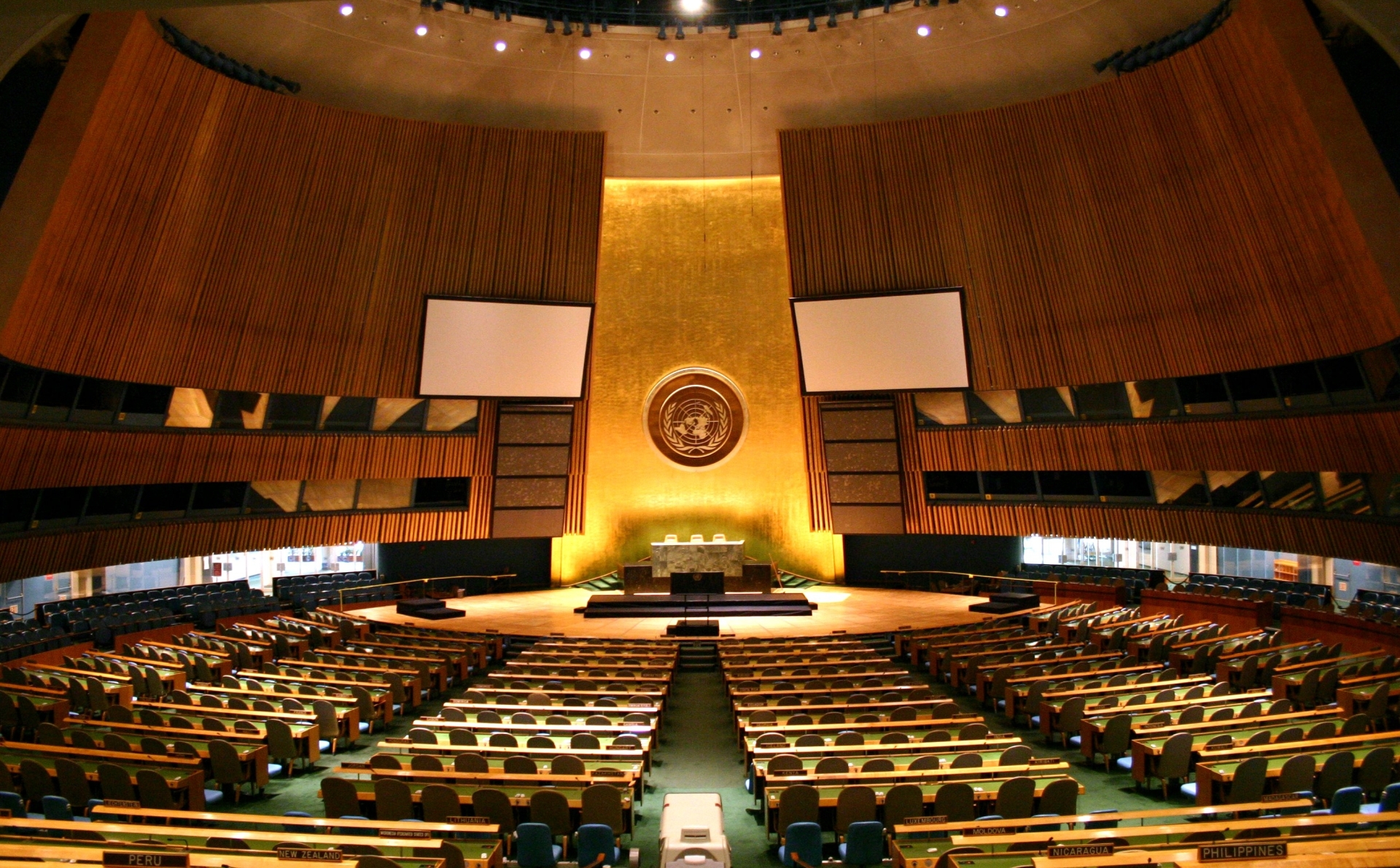
United Nations 101: The Six Primary Organs of the UN

When the United Nations formed in 1945, the organizational structure was set and still operates today, although the roles the various bodies play have changed over time as the United Nations has added Member States and has expanded its global functions. At its founding in 1945, the UN had 51 Members; today UN Membership stands at 193, with two additional Observer States. This blog post will introduce the main organs and functions of the United Nations, and, in the coming weeks, we will introduce each of the main organs in more depth to explore the United Nations system as a whole.
The United Nations General Assembly (UNGA) was envisioned as a parliament of nations, where each Member would have an equal voice and one vote. It is both deliberative and policy-making, though its resolutions are non-binding on Member States. The General Assembly meets annually in a plenary session from September to December to discuss broad international issues as well as to consider resolutions passed by its Main (or numbered) committees. Developing states, due to their number, have a significant amount of influence on the General Assembly’s agenda, and it is the primary foreign policy and diplomatic outlet for many smaller states. Many other agencies also send an annual report to the General Assembly for review and consideration.
The United Nations Security Council (UNSC) is a more specialized body, devoted to the maintenance of international peace and security. The Security Council originally had 11 Members, but this number increased to 15 in 1965. Five Member States, China, France, the Russian Federation (originally the Soviet Union), the United Kingdom and the United States, have a permanent seat on the Security Council and hold a veto, as any substantive vote requires the concurrence of the Permanent Five. The ten non-permanent Members are elected by the General Assembly on a two-year rotating regional basis. A representative of each country seated on the Security Council must be present at the UN headquarters in New York, so the Council can convene at any time, and all Member States of the United Nations agree to be bound by decisions of the Security Council. The Security Council can establish peacekeeping operations, establish sanctions and authorize military action and has done so in Korea, the Congo, the Suez, Kuwait, Somalia, and Cyprus, among others.
The Economic and Social Council (ECOSOC) is the primary organ devoted to discussing global economic, social, and environmental issues and to implementing policies to advance these areas. ECOSOC also serves to coordinate and oversee the work of various regional and topical efforts and overseeing the work of some subsidiary organizations and expert groups. Over time, the work of ECOSOC proper has diminished as the General Assembly Third Committee and other organizations have taken over some of its mandate. Fifty-four States are elected to ECOSOC by the General Assembly, and non-governmental organizations and business and private-sector representatives also play a large role in the ECOSOC system.
The International Court of Justice (ICJ) is an international court designed to adjudicate cases between States, rather than cases involving individuals. To date, the Court has decided 137 cases, has issued more than 25 advisory opinions and 11 more cases are pending. In the past, one of the Court’s major functions has been to rule on border or territorial disputes, the use of force, and other matters of international law. The Court is composed of 15 independent justices elected for nine-year terms by the General Assembly and Security Council and is based in The Hague, Netherlands.
The Trusteeship Council (TC) was established with the post-colonial post-1945 world in mind. The Trusteeship Council was set up to provide a mechanism for administering, and eventually admitting as Member States or overseeing their incorporation into other states, a number of territories that had previously been part of colonial empires and holdings. The work of the Trusteeship Council was suspended in 1994, when the last of the Trustee territories, Palau, gained its independence. Today, the five Permanent Members of the Security Council are the nominal members of the Trusteeship Council.
The Secretariat, to include the Secretary-General, is the staff of the United Nations and the last of the six primary organs of the United Nations laid out in the Charter. The Secretariat is the executive arm of the United Nations, and its 44,000 civil servants from all over the globe enable and carry out much of the work of the United Nations.
In addition to the main organs of the United Nations there are numerous specialized and technical agencies, which today carry out much of the work of the organization. Together, these six primary organs and the UN specialized and technical agencies carry out a tremendous amount of work in the world. Though we may hear frequently about contentious or timely Security Council resolutions or dramatic speeches and moments in the General Assembly hall, much of the success and accomplishments of the United Nations is borne in the quiet, day-in-and-day-out work of diplomats and bureaucrats around the world.
Keep Up With The Accords
More to read
The AMUN Accords is a premier resource for fact-based Model United Nations simulations. We are always looking for new contributors. Want to write for the AMUN Accords? Check out out the submission guidelines and then get in touch!




